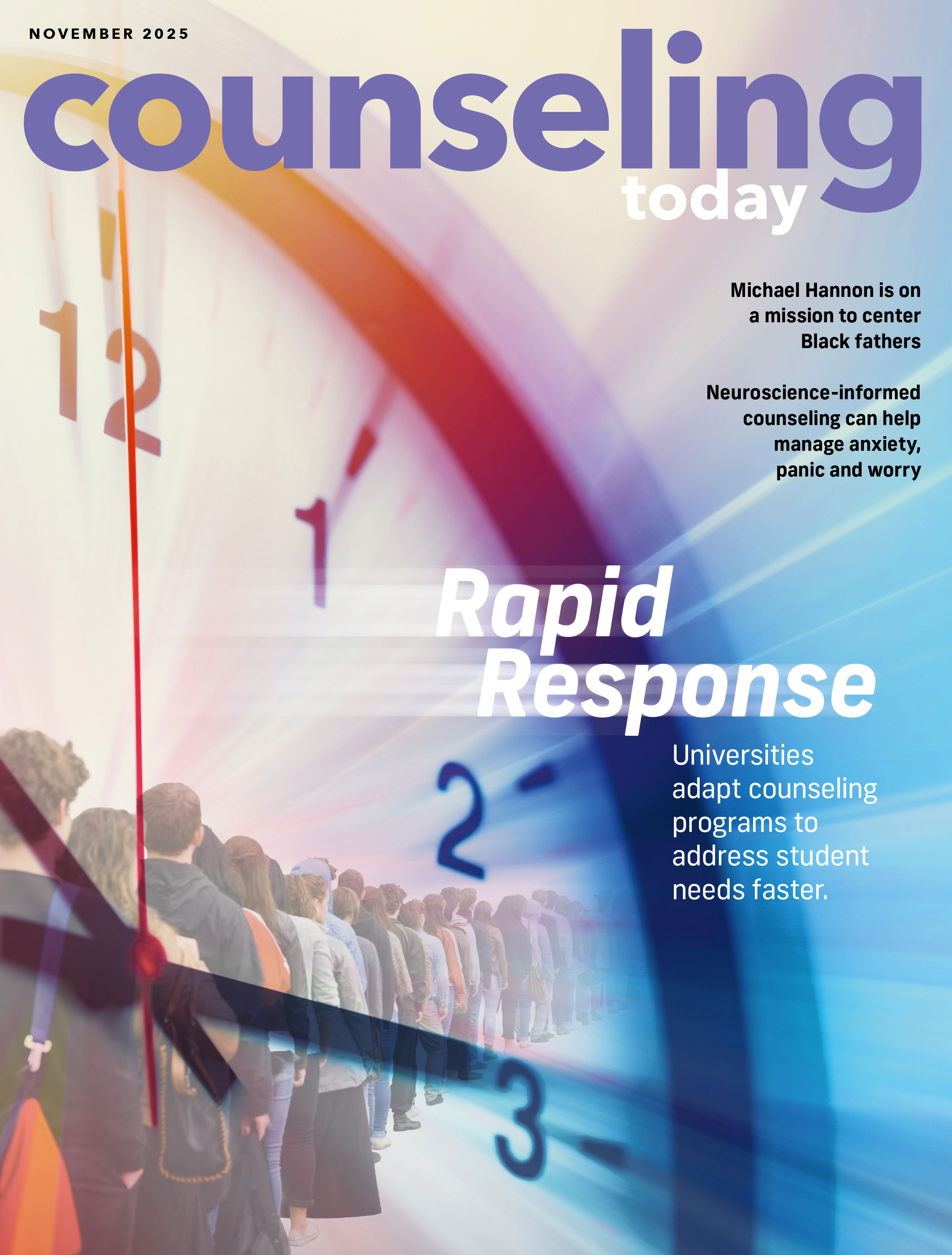Explore Counseling Today Articles
From the President: The Land on Which We Stand
As we begin to decolonize the profession, a few essential steps must be taken. First, we must accept the existence of different forms of knowledge, and land acknowledgments are an important part of this step. We must also understand the difference between decolonization and decoloniality. Decoloniality is an ongoing process of recognizing that valuable knowledge existed before Western colonization, and we must acknowledge history as it was, not as some want it to be. Using one of the models of decolonization from Virgilio Enriquez, PhD, and the Hawaiian lawyer Poka Laenui, ACA will incorporate a land acknowledgment ceremony into our annual conference in New Orleans.
This ceremony should be familiar to ACA members because ACA and some divisions, such as the Association for Multicultural Counseling and Development and Counselors for Social Justice, have been incorporating these ceremonies into their conferences.
The ceremonial land acknowledgment held during the 2024 ACA Conference & Expo will be coordinated by the Native American Concerns Group of the Association for Multicultural Counseling and Development. Roni K. White, LCPC, and Nicola A. Meade, PhD, LCPC, LCP, the vice presidents of the Native American Concerns Group, provided me with the following background on the importance of land acknowledgments and the role they play in decolonizing history:
The practice of gift-giving is an important part of Native American culture, but its meaning and purpose is not uniform across the Native nations and tribes dwelling on the land currently named the U.S. For many, it can be a way to strengthen or reinforce relationships, a meaningful spiritual practice, good manners or a ceremony. The preparation for the land acknowledgment ceremony that will occur during ACA’s annual conference provides us with an opportunity to practice and perhaps even embody cultural appreciation.
Land acknowledgments provide us with a space to honor the people who have lived on and cared for the land before colonization, massive trauma and exploitation. The components are informational, including historical and current facts about local Nations and tribes, cultural appreciation, awareness, recognition of collective and historical trauma experiences, and examples of post-traumatic growth and resilience. They also allow attendees to deepen their understanding of the impact of colonialism and current realities.
The land acknowledgment held during the opening session will be offered as a ceremony. In many Native American traditions, a ceremony is a protected or sacred space that has a distinct opening and closing and serves a purpose. This purpose can entail transformation, healing, connection, hope, prayer, celebration and ritual. Eduardo Duran, PhD, has described ceremony as a space with its own rules, circle and container, and he has said, “Psychotherapy is a form of ceremony in Native communities.”
Land acknowledgments are an opportunity to offer healing through honoring lived experiences, understanding the impact of colonization and balancing mourning with celebration of life. We begin to pave a healthy path forward when we uncover what was hidden and care for the tragedies, atrocities and ripple effects of the invasion of this land.
- Cultural Identities, Multiculturalism & Diversity
- Cultural Responsiveness
- Marginalized Communities
Search CT Articles
Filter CT Articles
Current Issue
Sign Up for Updates
Keep up to date on the latest in counseling practice. Sign up to receive email updates from Counseling Today.



